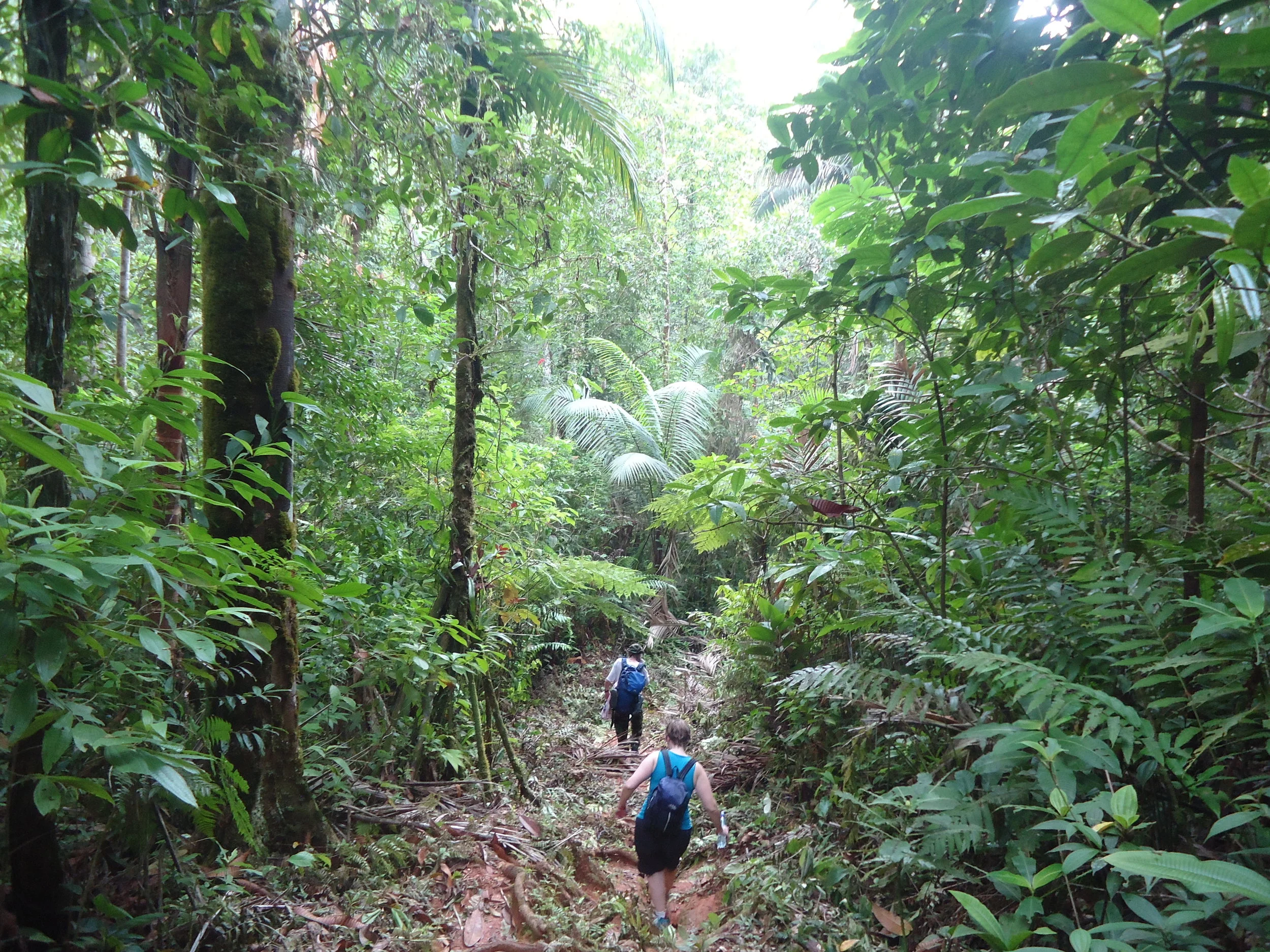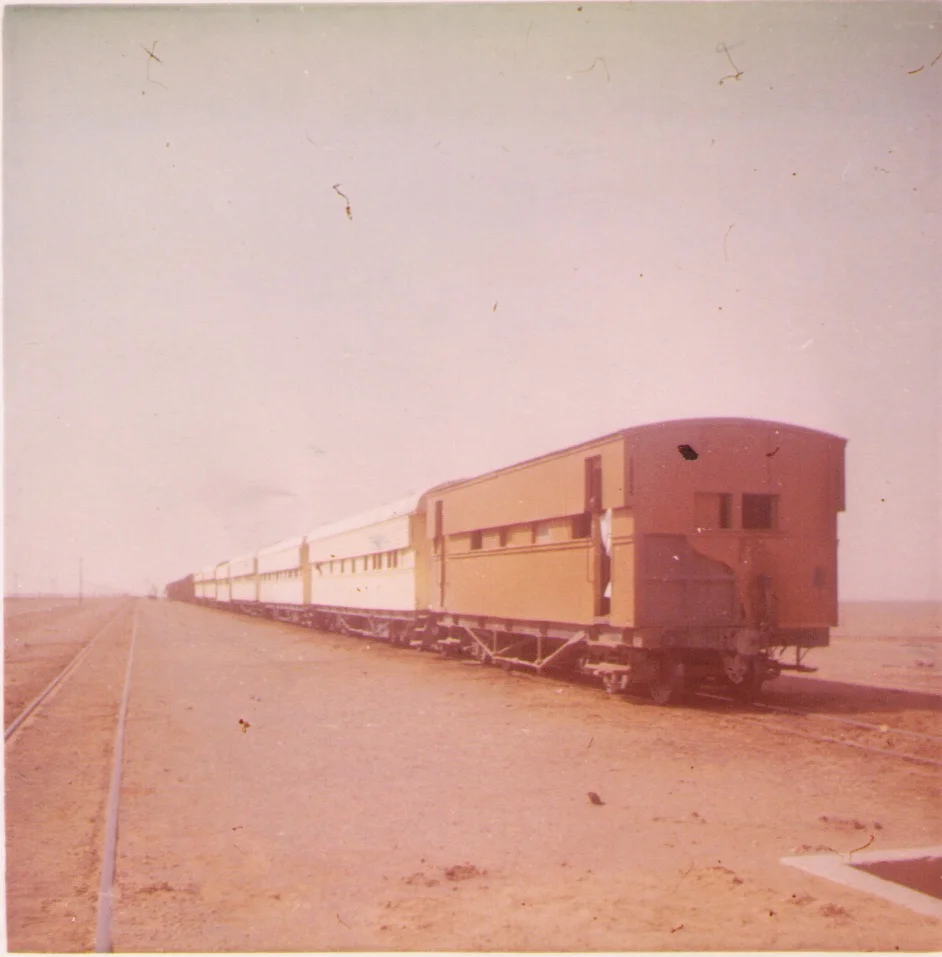Costa Rica and the Trek of a Lifetime
by Dina Lyuber
En route to Los Patos, we sat on benches in the back of an aged SUV as the road degenerated into two tire-tracks in the mud. I held on as though my life depended upon it while the car rattled up and down hills, into ravines and riverbeds. My husband and I were in Corcovado National Park on Costa Rica’s Osa Peninsula - 164 square miles of protected rainforest - where we would spend the next three days trekking.
After our guide helped us sign paperwork, we began our sixteen mile hike to Sirena ranger station. At the trailhead the sun was blazing, but beneath the tree-cover we were ensconced in shade and the ninety-degree heat became bearable. We settled into the long hike between towering, spider-limbed trees. The ground was a muddy mess of decomposing foliage. At the river crossings, we took short breaks to remove our packs and lie down in the cold stream in our clothes, cooling off while tiny carnivorous fish nipped at our bare legs. The canopy was alive with noise: rustles, screeches and throaty brays, whistles and haunting bird calls. Occasionally we’d catch glimpses of wildlife when our guide, a biologist by training, stopped us mid-step to point out a sleeping ant-eater in a tree, or the roughhousing of spider monkeys as they pelted over us in the canopy.
We reached Sirena Station in the afternoon, and suddenly the foliage gave way to a manicured lawn. The sleeping rooms were all full, so we set up our tent across the lawn from the station, next to the rainforest. I took off my sloshy shoes and dumped out the water. At night, we lay in a sauna-like tent with the outside flap removed to coax a breeze. We slept on the edge of the jungle, amidst the cacophony of cicadas and howler monkeys. They were as sonorous as in the daytime. The tent was muggy, and I was sweating, sleepless. My brain swarmed with strange dreams as I finally passed out in the heat, the screams of the howlers echoing through my sleeping mind.
After a full morning of rest and leisurely day-hikes, we returned to the station for a hearty meal of rice, meat, and beans. We slept inside the station that night, on a foam mattress surrounded by mosquito netting. The sonorous nighttime noises were now the snores, shuffles, and nighttime whispers of our human neighbors.
We woke at four in the morning, scrambling to silence the alarm on our phones, and packed our bags in darkness with only our headlamps to provide a shaky circle of light. We were going on a night hike along the beach; we needed to leave early if we wanted to beat the tide. In the dark, mosquitoes swarmed to my headlamp, buzzing in front of my eyes, and the walk on sand was more challenging than on the springy forest floor. We could hear the ocean on our right, a constant lapping of the waves on the shore in the darkness. The sunrise came upon us gradually - the subtle shift from shades of indigo into reds and yellows, until I realized my flashlight was extraneous. Without the canopy to protect me, I could feel my shoulders burning, and I lathered myself in sunscreen.
After fourteen miles we reached La Leona station, and came out of Corcovado. I went to the bathroom at the station and saw myself in the mirror for the first time in three days. My face was sunburnt and sweat-stained. I felt achy, exhausted. Exhilarated.
Our final five days in Costa Rica were spent in comfortable beds, in hotels with sky-blue swimming pools, and on tourist-packed tours, jostling elbows for a camera-shot of a lone toucan. These days were comfortable and… easily forgettable. I missed the savage braying of the howler monkeys. I missed the languid brown rivers with the carnivorous fish. Sitting on a tour bus in my plastic poncho, a fuzzy volcano visible in the distance, I missed the ache of my sore limbs, the exceptional brightness of the night sky, and the flutter of dreams in a hot tent in the depth of a Costa Rican jungle.
Dina Lyuber is a freelance writer and ESL teacher from Canada. She is currently living a nomadic lifestyle by traveling around the world with her husband and two small children. Read about their family gap-year at theworldtrip.ca.








